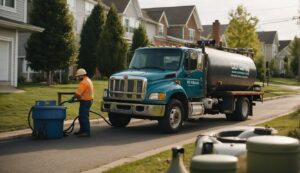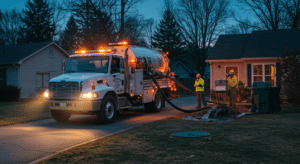Navigating the complexities of cesspool and septic system maintenance is a crucial aspect of responsible home ownership. These systems play a pivotal role in effective and safe household waste management. Hidden beneath the surface, cesspools are essential yet often overlooked components, ensuring proper wastewater disposal.
Given the unique environmental landscape of Suffolk County, local expertise in cesspool care becomes invaluable. Regular maintenance is not merely a suggestion but an essential practice for the longevity and efficiency of these systems. Local cesspool services offer specialized knowledge and tailored solutions, addressing the region’s specific waste management needs.
Selecting the right service provider involves finding experts who are well-versed in the local geography and regulatory standards. This choice is critical for ensuring prompt and effective waste management solutions for homes. A well-maintained cesspool is fundamental to a healthy and environmentally friendly home environment.
For comprehensive information on waste management practices in Suffolk County, homeowners can refer to the official guidelines provided by the Suffolk County Government. These resources are instrumental in staying informed about local cesspool regulations and practices, ensuring the smooth operation of home waste systems.
Understanding and maintaining cesspool systems is not just about adherence to regulations; it’s about safeguarding your home and the surrounding environment. With the support of knowledgeable local services, homeowners can ensure their cesspool systems are functioning efficiently and sustainably.
Understanding Cesspool Services
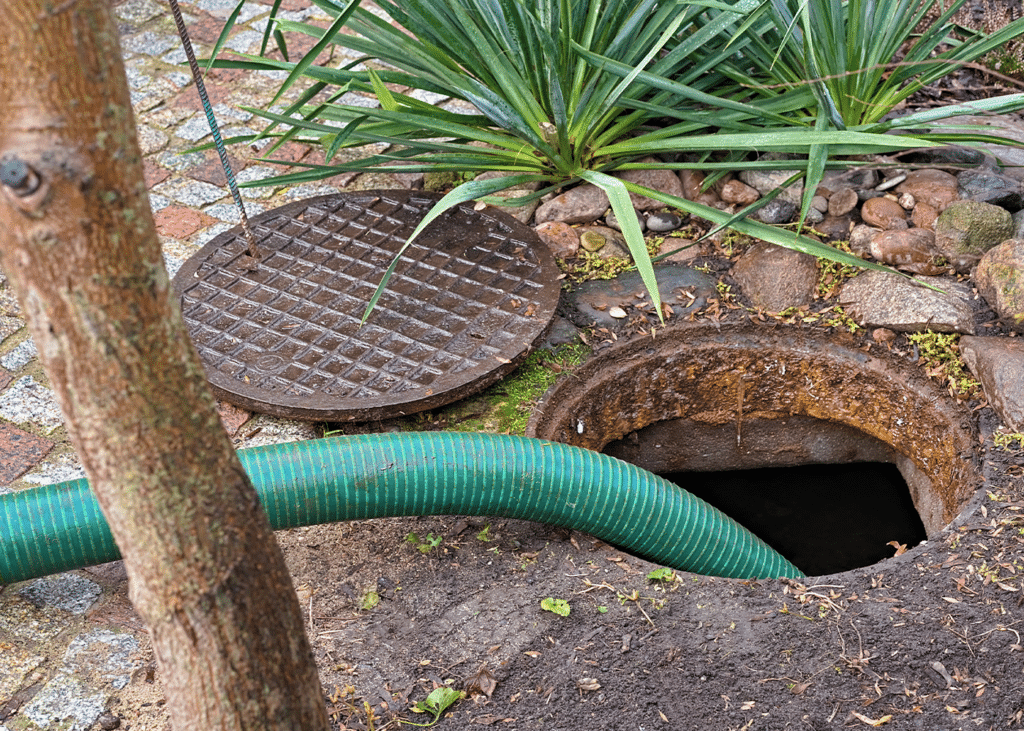
Cesspool services are essential for homeowners, especially in areas like Suffolk County where septic systems are common. Understanding these services is key to maintaining a healthy and efficient home waste management system.
What are Cesspool Services?
Cesspool services encompass a range of activities aimed at maintaining and repairing cesspools and septic systems. These include regular inspections, pumping, cleaning, and sometimes repairs or installations.
A cesspool, part of the septic system, is a pit which acts as a temporary storage point for waste and wastewater. Over time, solids settle at the bottom, and liquids seep into the surrounding soil through perforated walls.
How Do Cesspool Services Work?
The process begins with an inspection to assess the cesspool’s condition. Professionals look for signs of overflow, blockages, or damage.
Regular pumping, typically recommended every three to five years, removes accumulated solids and prevents overflow. Cleaning involves removing sludge and scum layers, ensuring the cesspool functions effectively.
Importance for Local Communities
In Suffolk County, where local environmental factors play a significant role, cesspool services are not just a convenience but a necessity. Proper maintenance ensures that waste is managed without harming the environment. It prevents soil contamination and protects local water sources.
Additionally, regular cesspool service helps in complying with local health and environmental regulations, avoiding potential legal issues.
Cesspool services are more than just a routine task; they are an investment in the health and safety of your home and the environment. Understanding and utilizing these services effectively can lead to a worry-free, efficient home waste management system.
The Unique Landscape of Suffolk County

Suffolk County’s distinct environmental and geographical characteristics significantly influence its waste management needs, particularly when it comes to cesspools and septic systems. Understanding these unique aspects is crucial for homeowners to ensure their waste systems are managed effectively.
Geographical and Environmental Factors
Suffolk County, with its diverse landscape ranging from dense urban areas to rural spaces, presents unique challenges for waste management. The county’s proximity to water bodies, like the Long Island Sound and the Atlantic Ocean, adds an environmental responsibility to maintain these ecosystems.
The soil composition and water table levels in different parts of the county also affect how cesspools function and are maintained.
Impact on Waste Management Needs
Due to these geographical variations, the approach to cesspool maintenance and septic system management needs to be tailored. In areas with high water tables or close to water bodies, there’s a higher risk of contaminating local water sources.
This necessitates more frequent maintenance and, in some cases, advanced waste treatment solutions to protect the environment.
Adapting to Local Requirements
Homeowners need to be aware of the specific requirements of their locality within Suffolk County. For instance, some towns may have stricter regulations regarding cesspool placement and maintenance due to their environmental sensitivity. Staying informed about these local regulations and adapting cesspool maintenance accordingly is essential for compliance and environmental protection.
The unique landscape of Suffolk County demands a specialized approach to cesspool and septic system management. Homeowners must consider these local environmental factors to ensure their waste systems are not just compliant with regulations but also contribute to the preservation of the county’s natural beauty and ecological balance.
Benefits of Choosing Local Cesspool Services
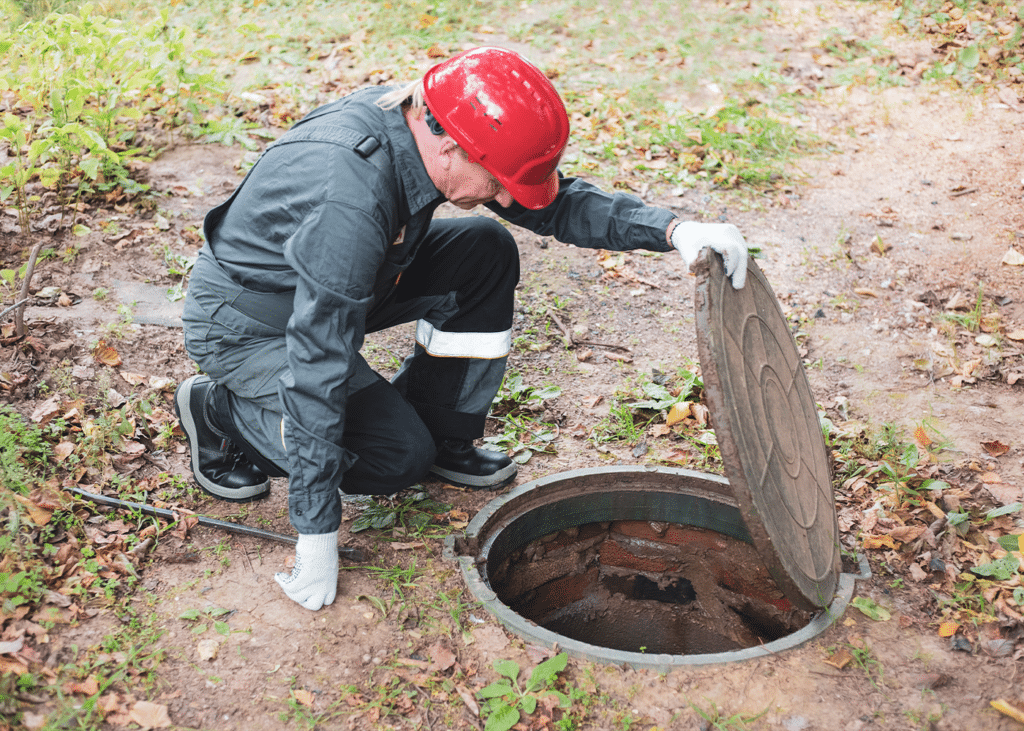
Selecting local cesspool services in Suffolk County offers distinct advantages for homeowners. These benefits are deeply rooted in the providers’ intimate understanding of the area’s unique environmental and regulatory nuances.
Local Knowledge and Expertise
Local cesspool service providers bring an in-depth understanding of Suffolk County’s specific geographical and environmental features. This expertise is vital for the effective management of cesspool and septic systems. They are well-versed in the area’s soil types, water table variations, and proximity to sensitive ecosystems, which are all critical factors in cesspool maintenance.
Faster Response Times
In cesspool-related emergencies, such as overflows or blockages, immediate action is crucial. Local services can offer swift responses, crucial in mitigating environmental risks and household disruptions. Their close proximity allows for prompt interventions, preventing minor issues from developing into larger, more complex problems.
Supporting the Local Economy
By choosing local cesspool services, homeowners directly contribute to Suffolk County’s economy. This support is vital for the sustainability of local businesses, fostering a thriving community economy that benefits all residents.
Tailored Solutions
Local providers can offer solutions precisely tailored to Suffolk County residents’ needs. They are knowledgeable about local regulations and environmental considerations, ensuring their services meet required standards while addressing the area’s unique challenges.
Today, that can often mean a mandated update to an advanced I/A OWTS nitrogen-reducing septic system. Fortunately, New York State, Suffolk County, and many townships all have grant and rebate programs available to reduce or even eliminate the cost of upgrading your septic system and playing a part in protecting our local waterways.
Companies like Bridgewater Environmental Services specialize in helping homeowners and even commercial property owners navigate the red tape to ensure the maximum amount of governmental funding available.
Choosing local cesspool services ensures access to experts who provide efficient, region-specific solutions, contributing positively to the community’s economic and environmental well-being.
Challenges Faced by Suffolk County Residents
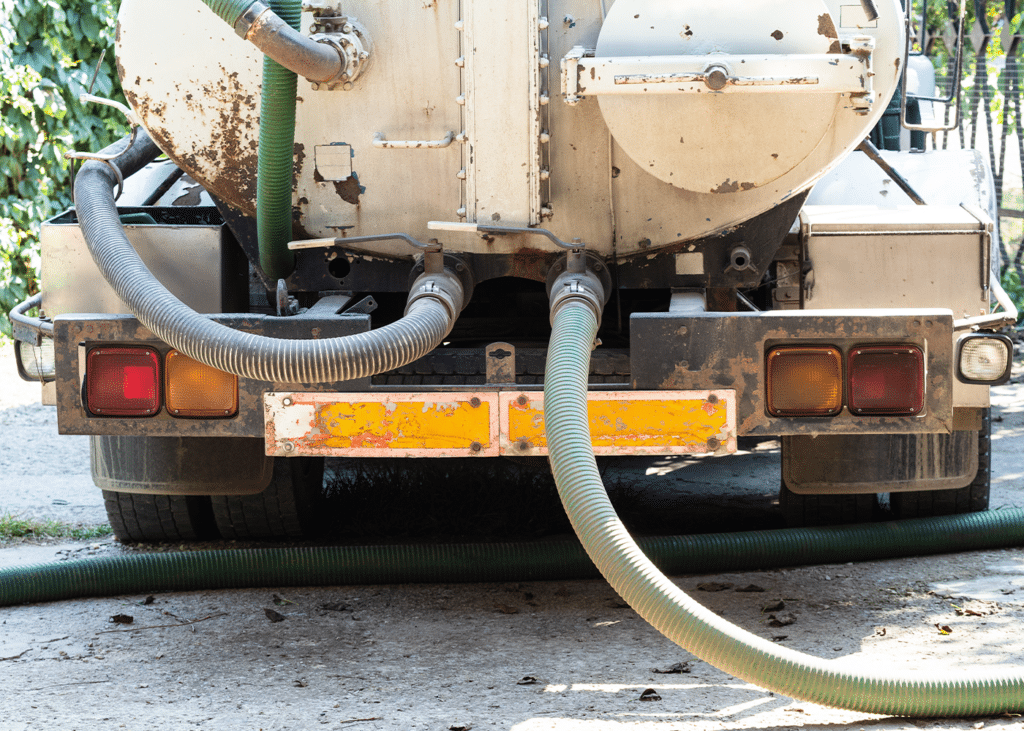
Homeowners in Suffolk County face unique challenges regarding cesspool and septic system management. These challenges stem from the county’s specific environmental conditions and regulatory landscape, requiring careful attention and specialized solutions.
Specific Cesspool Issues in the Area
Due to Suffolk County’s diverse geography, including its proximity to water bodies and varying soil conditions, cesspool systems here may encounter specific issues. These can range from faster rates of sediment accumulation to potential risks of groundwater contamination.
Such challenges necessitate regular, thorough maintenance and, in some cases, more advanced treatment methods.
Regulatory Considerations
Suffolk County has specific regulations governing cesspool and septic system installation, maintenance, and repair. These regulations are designed to protect the environment and public health but can pose challenges for homeowners unfamiliar with the details.
Navigating these regulations requires a good understanding of local laws and often the assistance of knowledgeable local service providers.
Environmental Concerns
Environmental protection is a significant concern in Suffolk County, especially given its beautiful natural landscapes and waterways. Homeowners must ensure that their cesspool systems do not adversely impact the environment. This responsibility includes preventing leaks or overflows that could lead to soil and water contamination, thereby harming local ecosystems.
For homeowners looking to understand more about environmental protection and cesspool management in Suffolk County, take a look at this guide to replacing sanitary systems in Suffolk County. This resource offers a good starting point in your journey to understanding what may be required to replace your cesspool or septic system.
Addressing these challenges requires a proactive approach to cesspool maintenance and a commitment to staying informed about local environmental and regulatory requirements. By understanding and responding to these challenges, Suffolk County residents can ensure their cesspool systems function effectively and responsibly.
How to Choose the Right Cesspool Service Provider

For Suffolk County homeowners, selecting the right cesspool service provider is crucial for ensuring effective and compliant waste management. This choice involves considering several key factors to ensure quality service and adherence to local regulations.
Some Factors to Consider
- Experience and Expertise: Look for providers with a proven track record in cesspool maintenance, particularly those familiar with Suffolk County’s specific environmental conditions.
- Licensing and Certification: Ensure the service provider is fully licensed and certified, indicating they meet the necessary professional standards and regulatory requirements.
- Customer Reviews and Reputation: Check customer feedback and reviews to gauge the provider’s reliability and quality of service. A strong reputation in the community is a good indicator of trustworthy service.
Questions to Ask Potential Service Providers
- What is your experience with cesspool systems in Suffolk County?
- Can you provide references from previous local clients?
- How do you handle emergency situations, and what is your response time?
- Are you up-to-date with the latest Suffolk County regulations regarding cesspool systems?
- What maintenance plans and services do you offer?
Staying Informed
Homeowners should stay informed about local cesspool regulations and best practices. The EPA maintains a helpful guide on How to Care for Your Septic System that can serve as a useful starting point for a conversation with your local septic service provider.
Choosing the right cesspool service provider is more than just a practical decision; it’s about ensuring the long-term health and efficiency of your home’s waste management system.
By considering these factors and asking the right questions, Suffolk County homeowners can find a service provider that meets their specific needs and contributes to the well-being of their home and the local environment.
FAQs About Local Cesspool Services
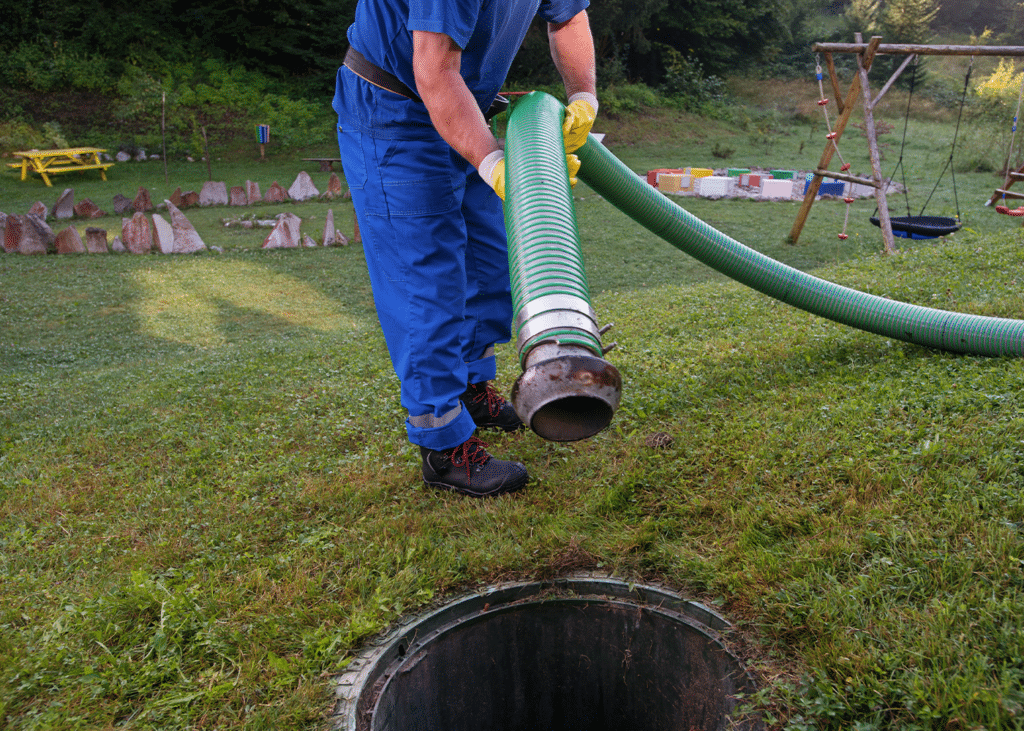
What is involved in cesspool maintenance?
Cesspool maintenance typically includes regular inspections to check for any signs of damage or overflow, pumping to remove accumulated solids and prevent backups, and cleaning to eliminate built-up sludge and scum. In some cases, repairs or installations may be necessary if issues are identified during the inspection.
How often should a cesspool be serviced?
The frequency of cesspool servicing depends on various factors, including the size of the cesspool, the number of people using it, and the overall household water usage. Generally, it’s recommended to have the cesspool pumped and inspected every three to five years.
What are the signs of a cesspool needing service?
Common signs that a cesspool needs servicing include slow draining sinks and toilets, unpleasant odors around the cesspool area, sewage backup in the house, and unusually lush or green grass over the cesspool area. Water pooling on the surface can also be a sign of an overflowing cesspool.
Can I maintain my cesspool system myself?
While basic precautions and care can be managed by homeowners, like reducing water usage and avoiding flushing harmful materials, professional service is essential for tasks like pumping and repairs. Cesspool maintenance requires specialized equipment and expertise.
What are the environmental impacts of cesspool systems?
If not properly maintained, cesspool systems can leak and contaminate the surrounding soil and groundwater, posing risks to public health and the environment. Regular maintenance ensures that waste is treated and disposed of safely, minimizing environmental impact.
How do local regulations affect cesspool maintenance?
Local regulations in Suffolk County may dictate specific requirements for cesspool placement, maintenance, and pumping frequencies to ensure environmental safety and public health. Homeowners should be aware of these regulations to ensure compliance and avoid penalties.
What should I look for in a local cesspool service provider?
Look for a provider with experience in handling cesspools in Suffolk County, proper licensing and certification, a good reputation with positive customer reviews, and a clear understanding of local regulations and environmental considerations.
Are there any rebates or financial assistance available for cesspool maintenance?
Some local governments or environmental agencies may offer rebates or financial assistance programs for cesspool maintenance, especially if it’s related to environmental protection. Visit our page on grants and rebates for specific programs if you’re located in New York State.
The Importance of Local Cesspool Services in Suffolk County
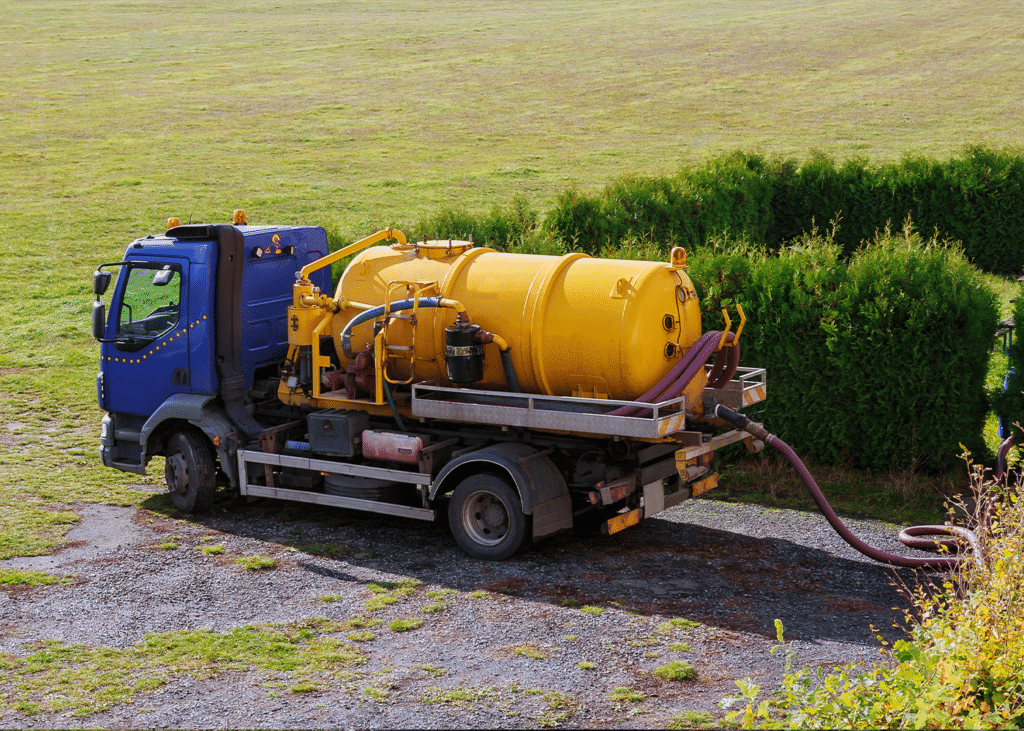
Understanding the significance of local cesspool services is crucial for homeowners in Suffolk County. Proper maintenance of these systems is not just a matter of convenience; it’s a vital aspect of responsible home ownership and environmental stewardship.
Cesspool and septic systems, when well-maintained, ensure the safe and efficient disposal of wastewater. This is particularly important in Suffolk County, where local environmental factors such as soil composition and proximity to water bodies play a significant role in waste management.
Regular maintenance helps prevent potential issues like soil contamination and groundwater pollution, safeguarding the community’s health and the local ecosystem.
Moreover, choosing local cesspool services supports the Suffolk County economy and ensures that homeowners receive expert care tailored to the specific needs of the region. Local providers are not only familiar with the unique challenges of the area but also understand the regulatory landscape, ensuring compliance with local laws and guidelines.
For homeowners, staying informed and proactive about cesspool maintenance is key. It’s advisable to regularly consult resources like the Suffolk County Government’s waste management guidelines and seek the expertise of local service providers. This approach not only ensures the longevity and efficiency of their waste systems but also contributes to the overall well-being of the community and the environment.
In essence, the role of local cesspool services in Suffolk County goes beyond mere waste management; it’s about contributing to a sustainable and healthy living environment for all residents.





